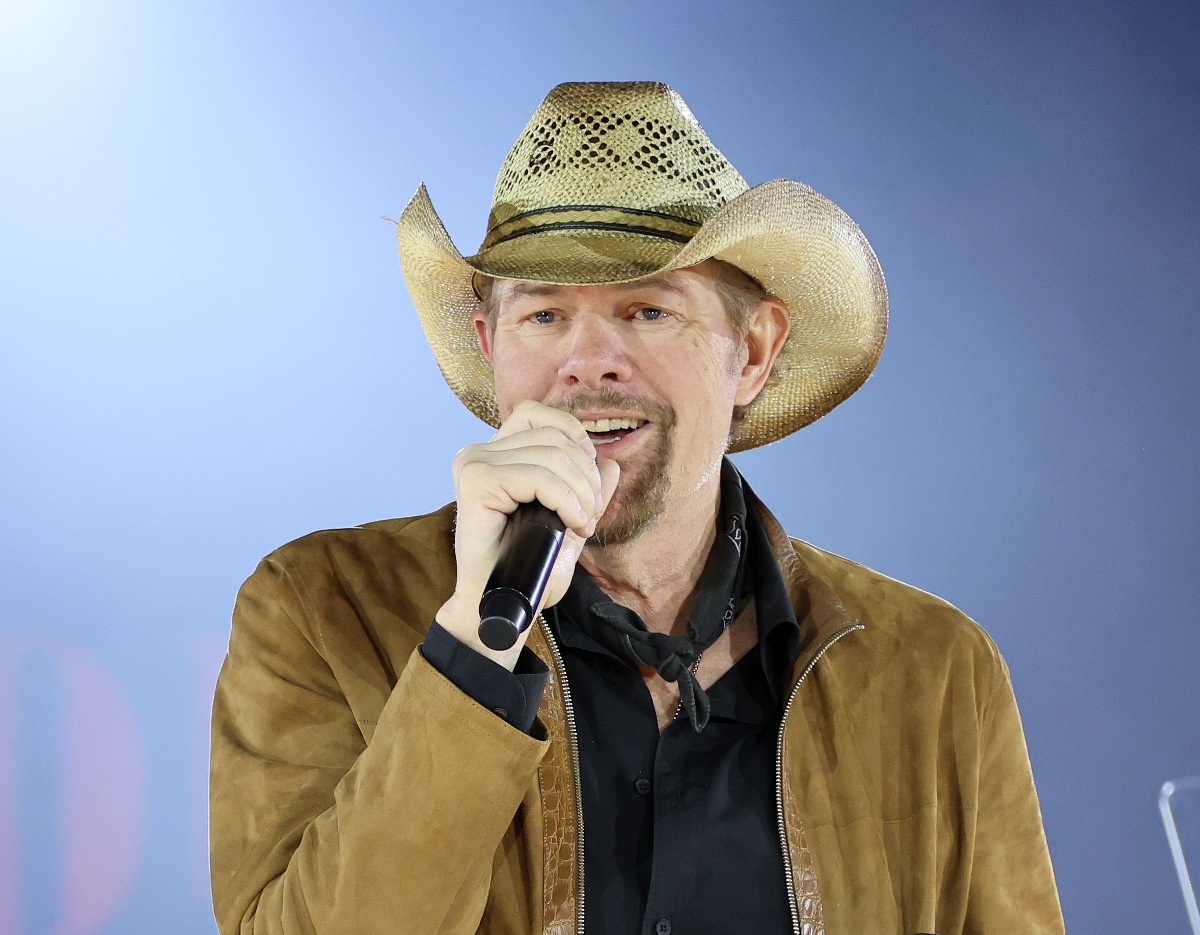A Country Legend's Resilient Spirit Lives On In Infamy
- Country music legend Toby Keith will be posthumously inducted into the Country Music Hall of Fame this year. He died in February of this year after a years-long battle with stomach cancer. According to the National Cancer Institute, stomach or gastric cancer begins in the cells lining the stomach.
- Keith was diagnosed with stomach cancer in 2021. He bravely battled the disease and brought supportive fans along for his journey, conveying the ups and downs of cancer. Notably, Keith remained positive and prayerful during his journey.
- Cancer patients, like Keith, commonly rely on their faith to help them remain in a positive headspace while undergoing treatment and beyond. New York City Presbyterian Pastor Tom Evans previously spoke with SurvivorNet about how faith can help people cope with the complex emotions that come with cancer.
- A study published in Cancer includes data that found “69% of cancer patients reported praying for their health” compared to “only 45% of the general U.S. population.”
Country music legend Toby Keith continues to cement his legacy after bravely battling stomach cancer. Posthumously, the “Red Solo Cup” singer will be inducted into the Country Music Hall of Fame this year. Amid an outpouring of support, many fans say they wished the honor came sooner.
“Toby’s passing left our hearts broken. We miss him so much, but we take comfort in the fact that his music and legacy will live forever,” Keith’s family said in a press release obtained by ABC News.
Fans expressed their support on the singer’s Instagram page but wished the distinguished honor occurred much sooner.
“I wish they did this while he was still here. He deserved this ages ago,” Instagram user Ryan Fournier commented.
Keith died in February at age 62 after battling stomach cancer. According to the National Cancer Institute, stomach or gastric cancer begins in the cells lining the stomach. The resilient singer shared many parts of his cancer journey with his loyal and supportive fanbase. Despite the ups and downs of treatment, the “American Soldier” singer remained defiant.
In the months before his passing, Keith performed numerous pop-up concerts to the delight of many fans. He then surprised many more fans with consecutive sellout shows in Las Vegas in the Fall of 2023. He delivered a powerful show by singing his signature hits during his legendary career.

“I haven’t worked a handful of shows in the last three years, but I worked every year for 27, 28 years,” Keith shared with the Bobby Bones Show radio program.
“The only thing that concerned me was being away from it for three years and remembering all the words. They subconsciously come to you when you’re working; you don’t even think about it. You know them. Getting completely away from them and having to start back,” Keith explained.

Behind the scenes, Keith remained faithful, prayerful, and determined with his cancer journey. Last Fall, Keith admitted his health journey was “a rollercoaster.”
“The surgery I had on my stomach, they had to stitch on my diaphragm and not use it to sing every night; that is a muscle, you know?” Keith said.
While Keith did not say the exact type of stomach cancer surgery he received, a gastrectomy – removal of part or the entire stomach – is the primary form of surgery. According to the National Cancer Institute, partial stomach removal is called a subtotal gastrectomy. A total gastrectomy is the removal of the entire stomach.
Ketih’s treatment also included chemotherapy, radiation, and immunotherapy. Immunotherapy is a cancer treatment method that uses the body’s immune system to fight cancer cells. We do not know what kind of chemo or immunotherapy he received.
How Faith Influences Cancer
His Faith Fueled His Fighting Spirit
Despite Keith’s arduous cancer journey, he always remained positive. Helping fuel his positivity was his faith in God.
“My faith…I’ve always rode with a prayer, and as long as I have him with me, I’m cool,” Keith said in a previous interview with the Oklahoman.
It’s commonplace for cancer patients to rely on their faith to help them remain in a positive headspace amid their journeys.
New York City Presbyterian Pastor Tom Evans previously spoke with SurvivorNet about the importance of finding ways to cope with the complex web of feelings you may be experiencing after a challenging health diagnosis, such as cancer or a threatening tumor.
“It’s important to reach out in a simple prayer to God, even if you’ve never prayed before, you don’t know what to say, a heartfelt plea, ‘God, help me, be with me,'” Pastor Evans told SurvivorNet.
WATCH: A Faith Perspective: Opening Yourself Up to Others After a Cancer Diagnosis
“You can reach out to God, and you can reach out to people, your friends and family, and say, ‘I can’t do this on my own. I need you.’ “It’s in that willingness to be open and to receive that we can find something deeper that we never would’ve encountered without this hardship,” Evans continued.
A study published in Cancer includes data that found “69% of cancer patients reported praying for their health” compared to “only 45% of the general U.S. population.”
Cancer psychologist Dr. Andrew Kneier helped co-author “Coping with Cancer: Ten Steps toward Emotional Well-Being.” He also co-authored a column published by Stanford Medicine with Rabbi Jeffery M. Silberman, director of spiritual care at Danbury Hospital in Connecticut.
The two add more context to the impact faith has on cancer patients.
“A person’s faith or spirituality provides a means for coping with illness and reaching a deeper kind of inner healing,” Kneier and Silberman said.
“Coping means different things to different people: it can involve finding answers to the questions that illness raises, it can mean seeking comfort for the fears and pain that illness brings, and it can mean learning how to find a sense of direction at a time of illness. Religious teachings can help a person cope in all these dimensions,” Kneier and Silberman continued.
Focusing on Joy and Support Rather Than the Cancer
By focusing on his music as he battled cancer, Keith maintained his emotional well-being and was filled with positivity. Dr. Dana Chase, a gynecologic oncologist at UCLA Health, says that maintaining good emotional health and quality of life is associated with better survival and patient outcomes. She encourages cancer patients to prioritize their emotional health for this reason.
“So definitely working on your emotional health, your physical well-being, your social environment, your emotional well-being, definitely working on those things and making them better are important and can impact your survival,” Dr. Chase told SurvivorNet.
Dr. Chase suggests tapping into your support network, which includes loved ones like friends and family. It can also be a patient advocate or a support group – in-person or virtual that shares your cancer or disease.
Questions to Ask Your Doctor
If you’re battling cancer or on the other side of it, and you’re struggling with your outlook on life, here are some questions you may consider asking your doctor to get the conversation started:
- What can I do if I’m struggling to be thankful for what I have in my life?
- Are there local resources for people wishing to improve their mental health?
- What else can I do to help reduce my stress level during my cancer journey?
- It’s difficult for me to find happiness and joy. How can I find help?
Learn more about SurvivorNet's rigorous medical review process.

